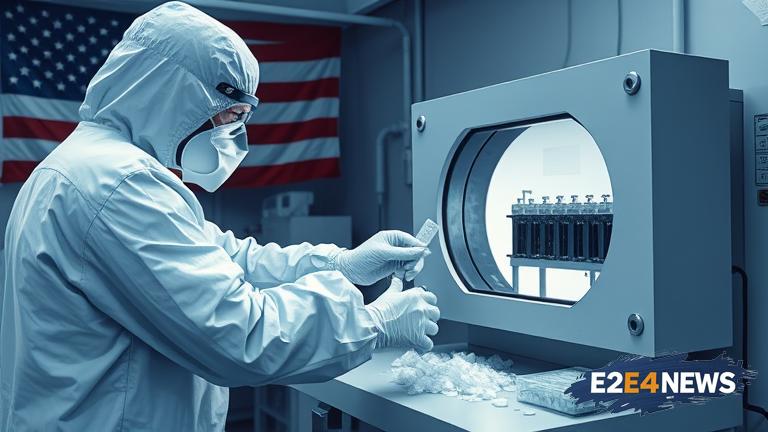The United States has taken a significant step in supporting South Asia’s efforts to combat the growing threat of fentanyl, a highly addictive and potent synthetic opioid. The US has provided advanced drug detection technology to several countries in the region, including Sri Lanka, India, and Bangladesh. This move is part of a broader initiative to strengthen regional cooperation and enhance the capacity of law enforcement agencies to detect and intercept fentanyl shipments. Fentanyl has become a major concern globally, with the United Nations reporting a significant increase in seizures of the drug in recent years. The drug is often smuggled into countries through complex networks of traffickers, making it challenging for law enforcement agencies to track and intercept. The high-tech drug detectors provided by the US are equipped with advanced sensors and software that can detect even small amounts of fentanyl. These detectors will be used at ports, borders, and other strategic locations to scan shipments and identify potential fentanyl consignments. The technology is also capable of detecting other synthetic opioids and narcotics, making it a valuable tool in the fight against drug trafficking. The introduction of this technology is expected to have a significant impact on the region’s efforts to combat fentanyl, which has been linked to a growing number of overdose deaths and addiction cases. The US has also provided training and technical assistance to law enforcement agencies in the region to ensure that they are equipped to use the technology effectively. This initiative is part of a broader effort by the US to support global efforts to combat the opioid crisis, which has become a major public health concern. The US has also been working with international partners to strengthen laws and regulations related to fentanyl and other synthetic opioids. The provision of advanced drug detection technology to South Asia is a significant step forward in this effort, and is expected to have a major impact on the region’s ability to combat fentanyl and other synthetic opioids. The move has been welcomed by law enforcement agencies and health officials in the region, who have expressed gratitude for the support and assistance provided by the US. The introduction of this technology is also expected to have a significant impact on regional cooperation and information sharing, which is critical in the fight against drug trafficking. The US has also announced plans to provide additional support and assistance to the region, including training and technical assistance, to help build capacity and enhance the effectiveness of law enforcement agencies. Overall, the introduction of advanced drug detection technology to South Asia is a significant step forward in the fight against fentanyl, and is expected to have a major impact on the region’s efforts to combat the opioid crisis.
